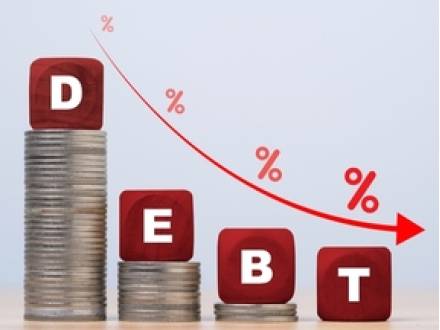What Happens to Debt During an Illinois Divorce?
 Debt is divided during divorce just like any other shared property. Many couples in Illinois carry joint debts like mortgages, car loans, or credit card balances. When a marriage ends, figuring out who is responsible for those debts is an important part of the divorce process. Understanding how the law applies to debt can help you prepare for negotiations and avoid surprises. For help with your specific case, contact a Plainfield, IL divorce lawyer.
Debt is divided during divorce just like any other shared property. Many couples in Illinois carry joint debts like mortgages, car loans, or credit card balances. When a marriage ends, figuring out who is responsible for those debts is an important part of the divorce process. Understanding how the law applies to debt can help you prepare for negotiations and avoid surprises. For help with your specific case, contact a Plainfield, IL divorce lawyer.
How Does Illinois Law Divide Debt During Divorce?
Illinois follows the principle of equitable distribution, meaning debts and assets are divided fairly, not necessarily equally. Under 750 ILCS 5/503, marital debt includes most debts acquired during the marriage, and it does not matter which spouse’s name is on the account. For example, if a couple took out a loan to buy a house or pay for their child’s education, that debt would likely be considered marital, even if only one spouse signed for it. On the other hand, debts that were incurred before the marriage or used for one spouse’s individual expenses may be treated as non-marital.
When determining how to divide marital debt, courts consider several factors. The judge will consider your financial situation and how much income you each make. Who benefited from the debt? Did either of you already assume more responsibility for other debts or property? If you earn significantly more or have more resources, the court may assign a greater share of the debt to you. The goal is to reach a result that is reasonable and just, based on the entire picture of your finances.
What Happens if Your Spouse Does Not Pay Their Share of Debt After Divorce?
Even if the divorce judgment assigns a debt to one spouse, that does not release the other spouse from liability if their name remains on the account. Creditors generally do not care what your divorce decree says. They can still attempt to collect from either person listed on the loan or credit card. For this reason, many divorce settlements require one spouse to refinance joint debts into their name alone. However, this does not always happen. If your ex-spouse fails to pay a debt they were assigned, and your credit is impacted, you may need to return to court to enforce the divorce order. Under 750 ILCS 5/511, you can file a petition asking the court to hold your ex in contempt and force them to follow the judgment.
How To Prepare for Debt Allocation During an Illinois Divorce
Being proactive can reduce stress and conflict. Before or during your divorce, gather financial documents that show current balances and payment history for all debts. Try to close or freeze joint accounts to prevent new charges. Review your credit report for accuracy and uncover any joint debts you may not remember.
You should also consider whether you and your spouse filed joint state tax returns. Under 35 ILCS 5/909, both parties may still be liable for Illinois state income tax debt, regardless of the divorce terms. Speaking with a financial advisor or accountant may help you understand the impact of debt division and avoid unexpected outcomes.
Talk to a Plainfield, IL Divorce Attorney Today
With over 40 years of legal experience, Attorney Robert Kramer is a trusted and accomplished trial and appellate lawyer who understands how to protect your financial future. He will guide you through every step of the process.
Clients consistently rate us highly for our responsiveness, professionalism, and thorough guidance in complex legal matters. If you are facing a divorce and unsure how debt will be handled, call 630-785-2400 to speak with the Will County, IL divorce lawyer at The Law Offices of Robert F. Kramer, Ltd. today.







